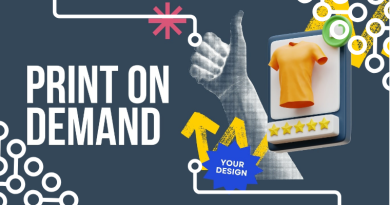Ranking of the 11 best eCommerce platforms
The first step to creating your online store is choosing the ecommerce platforms where the online store will operate. To do this, we have made a Ranking of the 11 best online sales platforms based on our experience.
This choice is based on many factors: ease of use, price, functionalities, design options, integrations, maintenance, SEO optimization and loading speed…
Each of the Ecommerce platforms is different and is focused on a specific market niche. Each platform has its pros and cons, and it depends on your type of business and stage you are at.
Most used eCommerce platforms:
We are going to review, comparing their characteristics and pros and cons, the most used Ecommerce platforms to give you a quick and easy resource to decide.
1.WIX eCommerce
Best ecommerce platform for small businesses
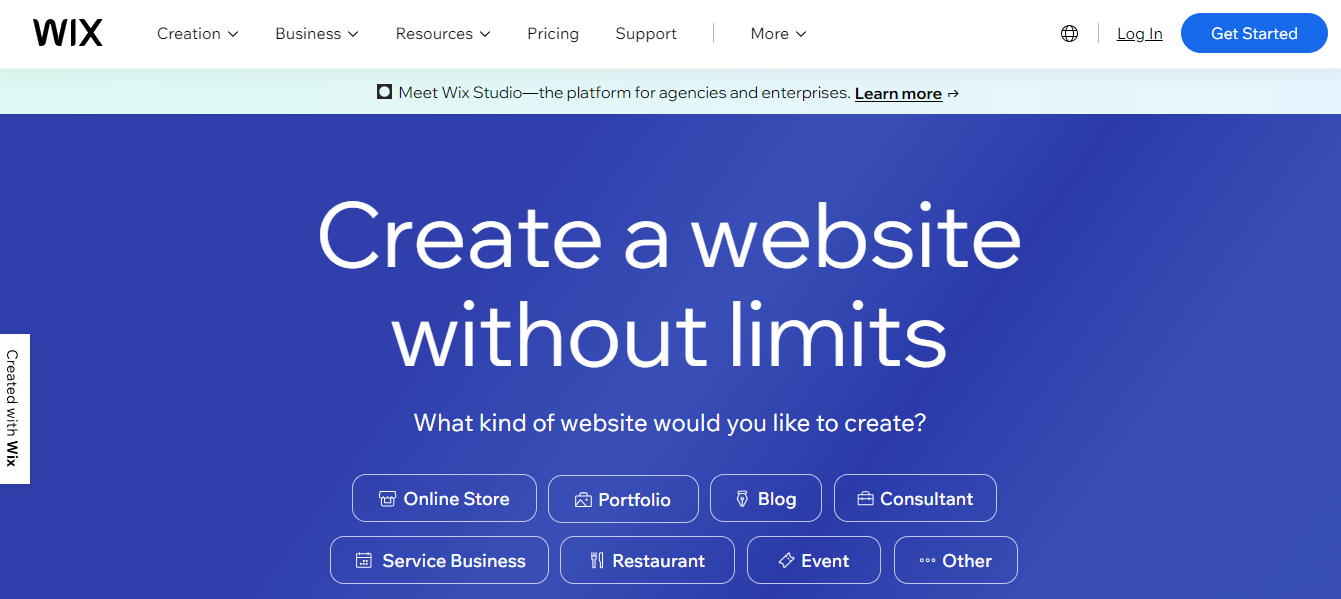
Whether you want to create a website or need to set up an online store , WIX has you covered.
WIX has more than 100 mobile-friendly eCommerce templates in its template store, which you can edit with custom fonts or choose from the 100 available fonts.
After experimenting with online store templates, they all offer a modern and elegant design.
According to Google Trends, WIX is the most searched website builder and has more than 100 million users worldwide. You’ll be in good hands once you create your account .
On the other hand, WIX is constantly adding new features, such as review systems, selling print-on-demand products or offering subscriptions, so you can continually improve your own online store.
WIX eCommerce is definitely an all-in-one online store builder that has nothing to envy of its direct competitors, such as Squarespace and Shopify.
Like Squarespace, it offers eCommerce features to complement the website building elements you already have, but it doesn’t have as much focus on building online stores as other eCommerce platforms.
Pros
Cons
Price
In total, WIX has seven plans divided into two categories: Website Plans and Business and E-Commerce Plans . The former are the most suitable for creating personal websites, while the latter are more appropriate for online stores, since they are the only plans in which you can accept online payments.
Below we show you the prices of the eCommerce business plans:
- Basic Business (9,50/month).
- Unlimited Business (14/month).
- Business VIP (25/month).
Try WIX and start selling your products online.
2.Shopify
Best eCommerce platform for emerging brands and DropShipping

Shopify is one of the fastest growing e-commerce platforms in recent years. It works as an all-in-one solution for beginners and emerging brands who want to launch an online store without resorting to external web development or high maintenance costs.
Everything you need is already integrated into the platform: from the hosting and store design, to the blog and sales analysis. Once the basics are configured, it is very easy to scale your online store with Shopify applications that provide more functionality to the store (email marketing, SEO, Review System, etc.).
Shopify stands out for its simplicity when it comes to configuring editing styles and creating product and collection sheets with a selection of well-designed Shopify themes and templates .
On the other hand, the reports include details about your sales and data about customer purchases. You can also view analytical data. Very useful when it comes to knowing what to do in the future.
Pros
Cons
Price
Shopify’s pricing for each of their plans is fair, but they charge a 2% transaction fee if you use a payment gateway other than Shopify Payments. Some of the themes are expensive, and some applications add high costs to your monthly bill, but if you know how to choose well, you will have a professional store without much cost.
You will get 24/7 support, via live chat, email and phone. the response is acceptable and will not take more than 48 hours.
Below we quote Shopify pricing rates :
- Shopify Lite Plan – 5/month
- Basic Shopify Plan – 25/month (monthly) or 19/month (annual)
- Shopify Plan – 65/month (monthly) or 49/month (annual)
- Advanced Shopify Plan – 399/month (monthly) or 299/month (annual)
3.WooCommerce
Best eCommerce platform for WordPress (Free + extensions)
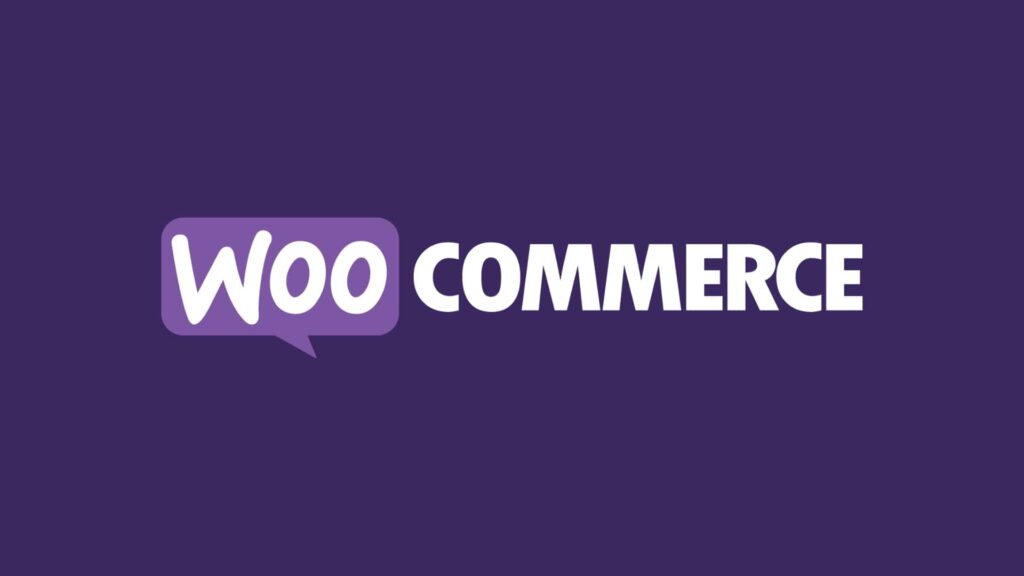
WooCommerce is the most popular technology to create an Ecommerce and the plugin of choice for WordPress users. With over 5 million active installations and 4.5 out of 5 stars in the WordPress repository, WooCommerce is a free plugin that features hundreds of WooCommerce themes and additional extensions. In addition, it has the best optimization for search engines and SEO.
With this plugin you can create categories, subcategories, tags and attributes for your product catalog. Additionally, you can manage your store with sales reports, order reports, analytical data through integration with Google Analytics and many more Ecommerce tools .
Pros
Cons
Price
Although the use of the WooCommerce plugin is free, the cost of using premium templates, hosting or extensions can amount to a total of 300 /year , a price similar to ecommerce platforms such as Shopify or BigCommerce.
4.Shopify Plus
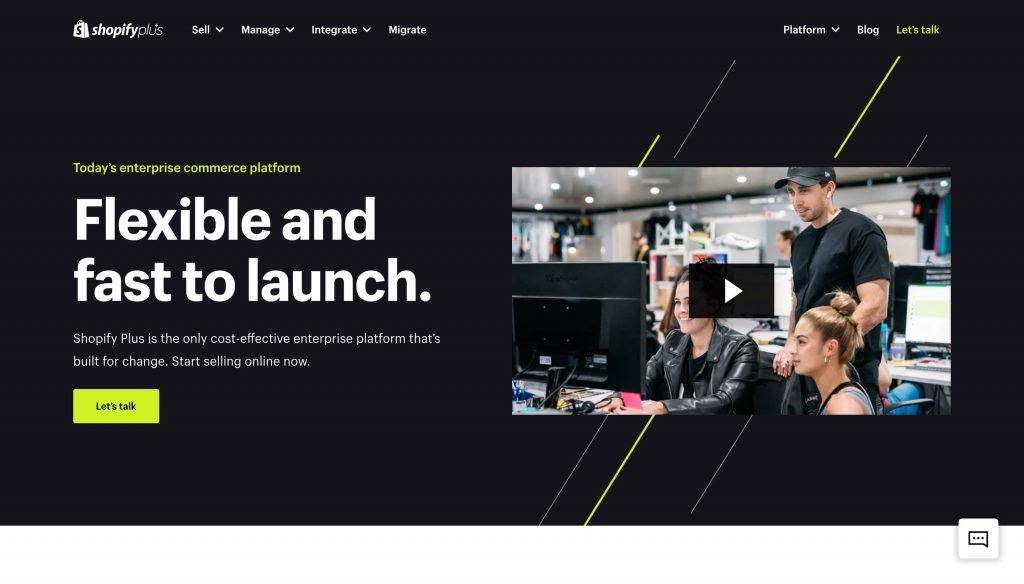
Shopify Plus is an enhanced version of the basic Shopify platform aimed at enterprise-level businesses focused on the United States and Europe. It is one of the best Ecommerce platforms for companies, thanks to its ability to simplify complex technology and at the same time allow managing product lines of up to 100 variants through multiple channels.
It offers higher levels of web development and management system, as well as all the automation tools necessary to scale a brand internationally. You will also not have to worry about the number of orders, since this plan responds adequately to any volume of orders.
Pros
Cons
Price
The monthly fee for the high-volume business solution offers your main online store and 9 expansion stores. The price for the monthly fee starts at $2,000 .
5.BigCommerce
Popular SaaS eCommerce platform for large and B2B companies
BigCommerce is an excellent open SaaS eCommerce platform that allows companies to develop, customize and grow their online businesses.
It is mainly focused on large companies with a high sales volume and advanced needs (such as international businesses, both B2C and B2B), although it also has an Essentials version aimed at smaller or newly created businesses.
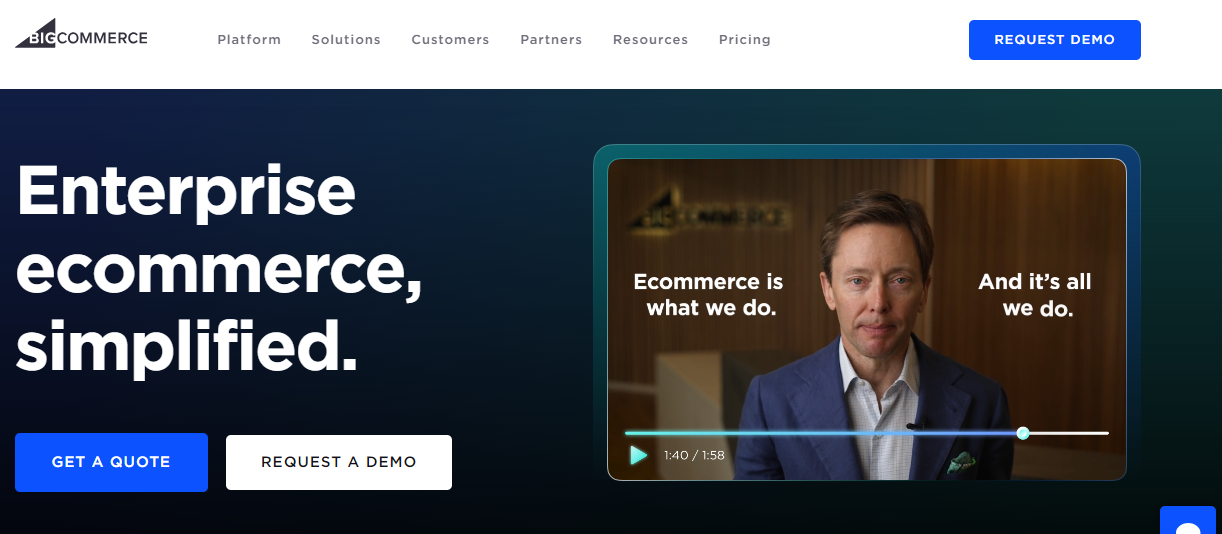
It is a good option for large brands looking for alternatives to Magento or PrestaShop, with greater performance and functionality, and with hosting and maintenance included. Thousands of brands in over 150 countries, including Ford, Toyota, Skullcandy , and others on the Fortune 1000, use BigCommerce and can easily surpass $100 million in annual sales without a hitch.
It is a highly customizable platform that allows brands to build tailored online businesses, for both B2C and B2B clients.
Its high level of modularity, access to all functionalities through API or headless features allow you to get the most out of its advanced back-end while providing complete freedom to design custom front-ends or connect with other company systems , such as ERP, PIM or CMS, including WordPress . It also makes it easy to connect with marketplaces directly or through Feedonomics.
More than 800 apps in the BigCommerce app store allow you to add numerous additional capabilities to your store, depending on your needs.
Pros
Cons
Price
BigCommerce payment plans are based on customers’ online billing . For the Enterprise version it is necessary to contact your sales department to obtain a customized quote .
For the Essentials version the prices are:
- Standard ($29/month). Sell up to $50,000.
- Plus ($79/month). Sell up to $180,000.
- Pro ($299/month). Sell up to $400,000.
6.LogiCommerce
Best Headless eCommerce platform for B2B and B2C
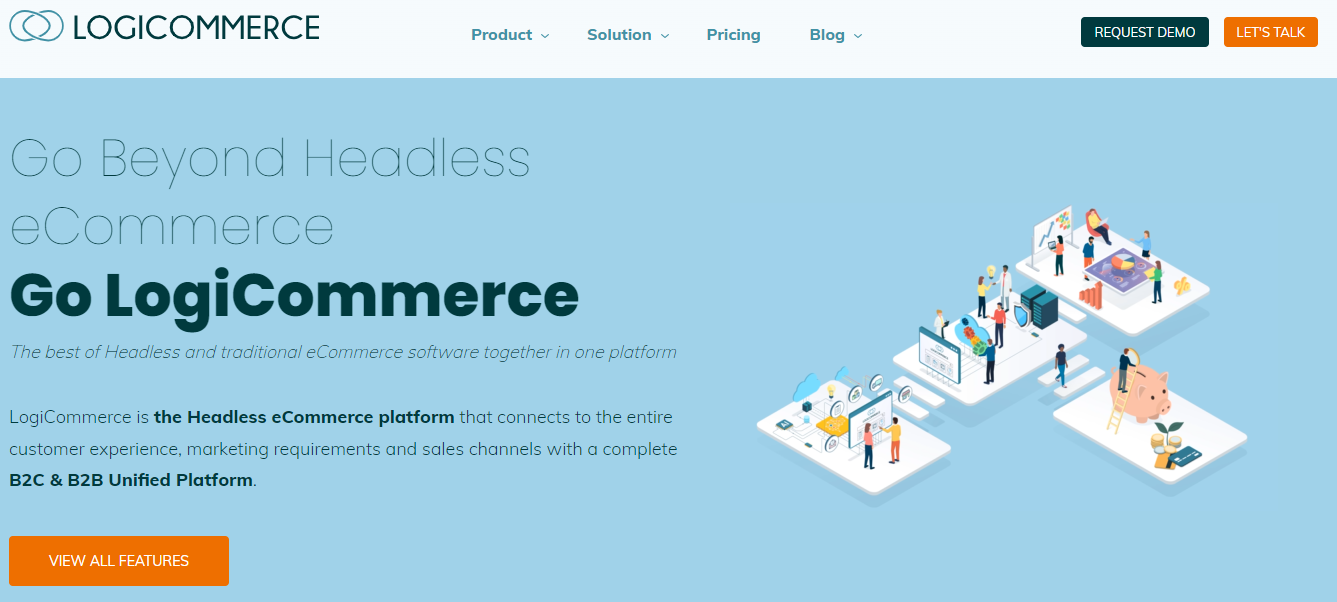
LogiCommerce is one of the most complete and affordable e-commerce platforms on the market. A SaaS solution with a Headless architecture designed to adapt to the needs of growing companies and large corporations, both B2B and B2C.
One of the elements that stands out the most about LogiCommerce is its intuitive and easy-to-use interface that greatly simplifies daily e-commerce tasks with functions such as Drag & Drop, Multi-window and copy/paste .
Another significant quality of LogiCommerce is that it provides more than 200 B2B and B2C functionalities such as multi-rate policy, commercial agent management, catalogs adapted to user groups, multi-shipping, smart discount prediction, bulk purchases and SEO tools, along with many more.
In fact, brands like Audi, eseOese, Eurekakids, GAP and VW trust LogiCommerce to grow their businesses efficiently and profitably.
Pros
Cons
Price
LogiCommerce has a fully transparent pricing policy that helps keep technical debt to a minimum and TCO under control. All prices are published on their website.
It offers two different plans according to the needs and requirements of each business:
- Growth Plan: 39/month.
- Business Plan: Customized pricing.
7.Ecwid
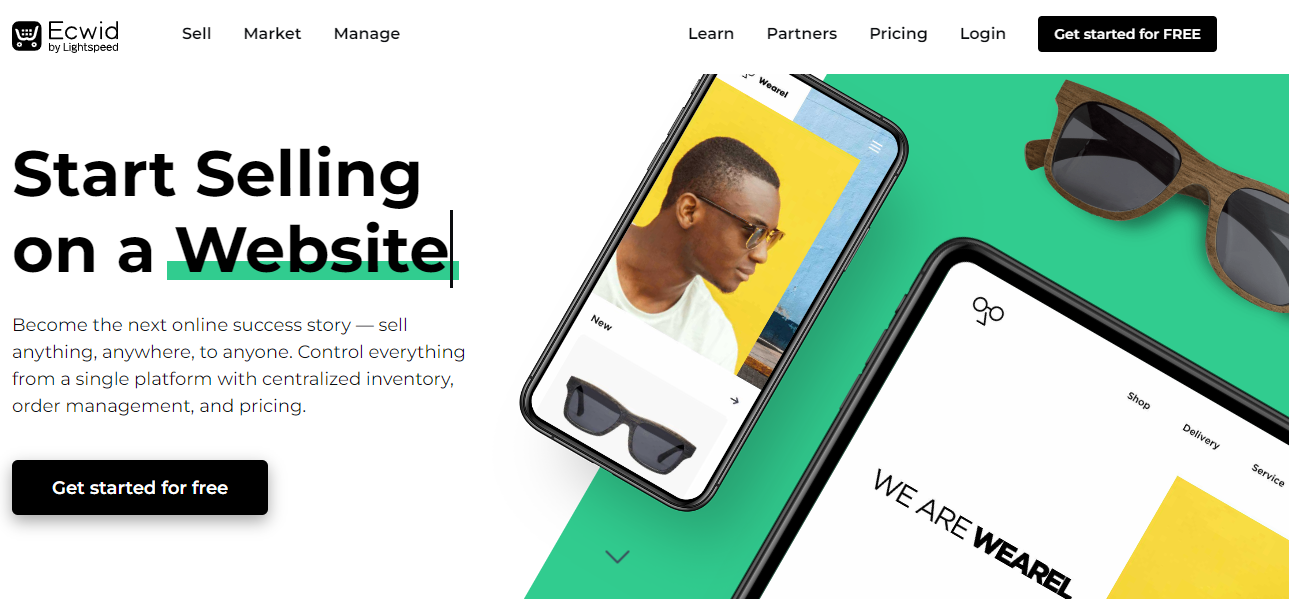
You can start selling and set up your account for free without needing to include a credit card . None of the plans carry any setup or transaction fees and offers more than 70 payment gateways worldwide, including PayPal and Stripe.
In addition, with Ecwid you can sell your products on the most important social networks, Instagram, Facebook, Pinterest or TikTok, as well as Google Shopping or Amazon. You can also find a market of more popular applications, tools and extensions to grow your online store, although limited.
As we mentioned at the beginning, Ecwid allows you to add your online store to various CMS, such as WordPress, Wix, Joomla or Squarespace, thus converting your website into an online store.
It is undoubtedly an option to review, especially for brands that manufacture their own products and sell to individuals. To carry out Dropshipping or B2B businesses, we recommend other e-commerce platforms such as Shopify or WooCommerce, where there are more integrations and eCommerce tools .
Pros
Cons
Price
-
- $14,08/month: Ecwid Venture Plan (Up to 100 products).
- $29,08/month: Ecwid Business Plan (Up to 2500 products).
- $82,50/month: Ecwid Unlimited Plan (unlimited number of products).
8.Magento Commerce
Best open source Ecommerce platform
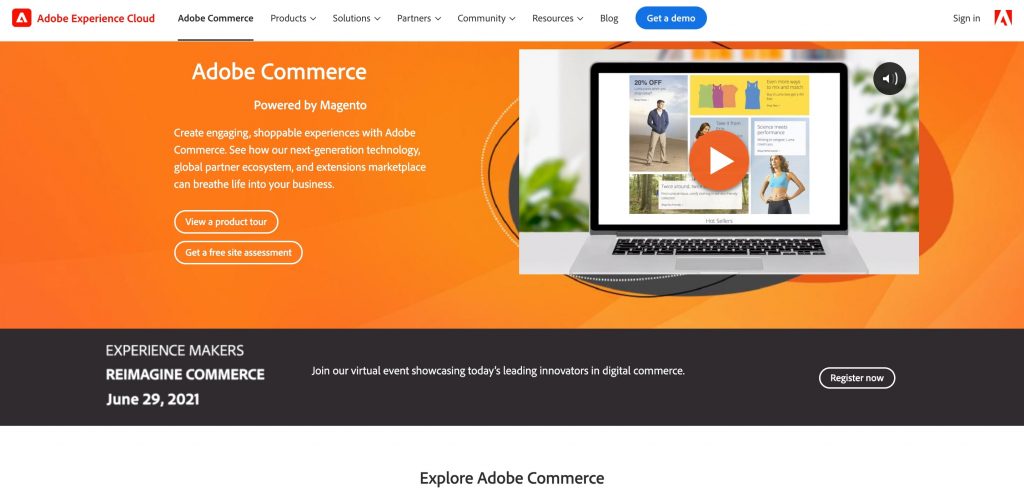
Magento is one of the oldest eCommerce platforms designed for small and large businesses. Dedicated for developers.
Magento is one of the most popular open source platforms in the world. It was originally released in 2009, and then replaced by Magento 2.0 in 2015 with an improved codebase and more usability/stability features. Magento was later purchased by Adobe in 2018, and now exists in two versions: Magento Open Source and Magento Commerce.
Magento is aimed at people with a technical background, so it is not a recommended platform for online store owners who need to design and build their own websites.
When managing the online store you can track orders and customers, with analytical data and detailed sales reports. Creating and managing products is something anyone can achieve with Magento. It even has unique inventory features.
Pros
Cons
Price
Although Magento is an open-source platform, the base prices are high, and they become more expensive the more successful your store is. Support is limited and not something Magento excels at.
9.PrestaShop
Founded in 2007, PrestaShop is an open source eCommerce platform that offers the best overall value. It has more than 300,000 active users and although it is not among the most popular in the world, PrestaShop is in the top 3 eCommerce solutions in the World .
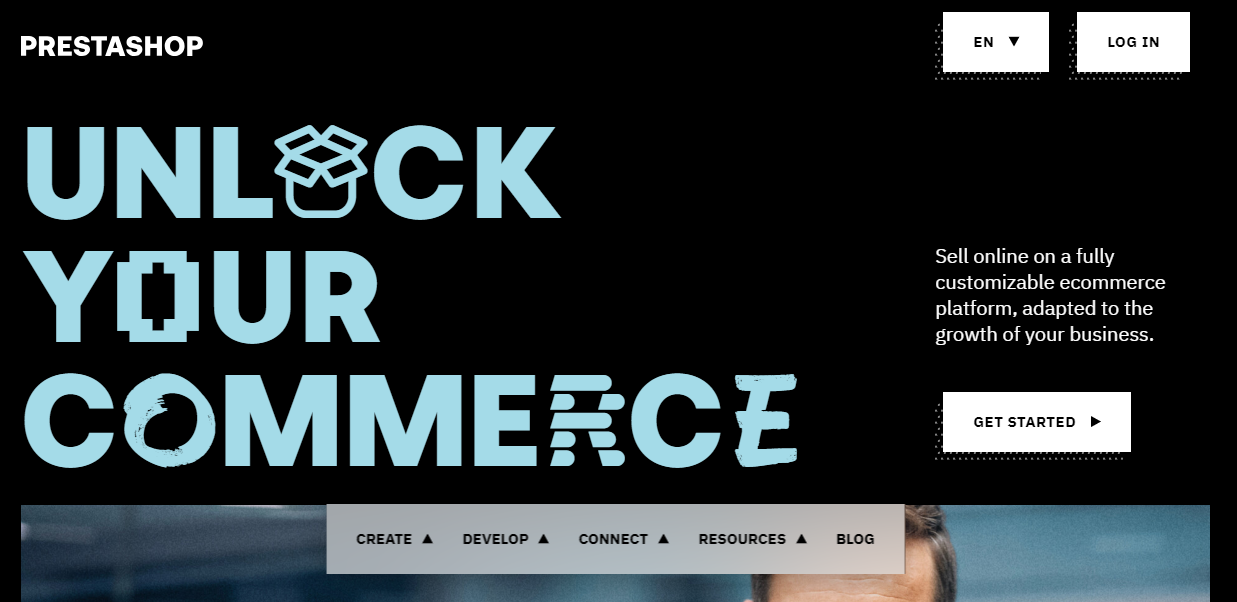
Pros
Cons
Price
PrestaShop is 100% free. No monthly payments or commissions on sales. However, the cost of hosting, SSL certificate, templates, plugin updates and licenses can increase the price of what eCommerce platforms like Shopify can cost, saving you from troubleshooting technical problems and maintenance.
10.Squarespace
Drag & drug e-commerce platform

Squarespace offers all the features a small online store needs. The Plan to create your online store offers you payment options, tracking your customers, creating gift cards and much more. Other website builders would require plugins to do all that.
Unlike eCommerce platforms like Shopify or BigCommerce, Squarespace is not only aimed at online store owners, you can also create blogs, portfolios, and corporate websites.
The biggest advantage that Squarespace offers is its drag & drop theme editor , which allows you to customize your theme much easier than on other eCommerce platforms. Customizing themes is easy and intuitive.
Squarespace is best suited for entrepreneurs and small business owners with basic needs to start selling online. If you need more advanced online selling requirements or inventory management, you would be better off with more dedicated ecommerce platforms such as Shopify.
Pros
Cons
Price
Squarespace offers basic ecommerce features suitable for small and medium-sized businesses, so its pricing is fair and affordable.
There are four plans available:
- Personal ($16/month).
- Business ($26/month).
- Basic Commerce ($30/month).
- Advanced Commerce ($46/month).
You can save 30% if you decide to pay annually. The Personal plan does not include e-commerce features.
11. Big Poster
eCommerce platform for independent creators and artists
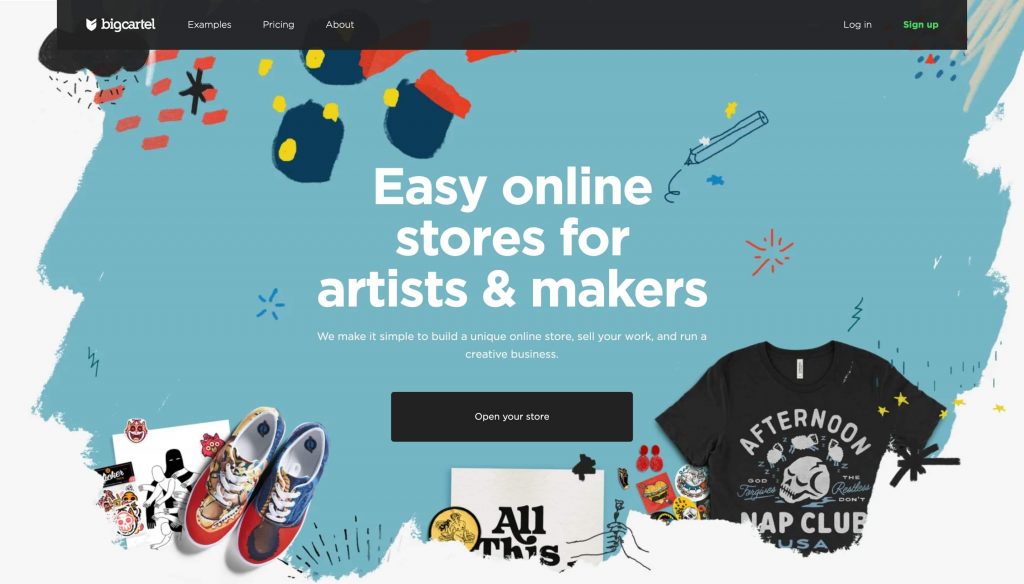
Big Cartel is one of the all-in-one Ecommerce platforms designed for creatives and artists. The builder is simple and intuitive. Perfect for displaying artistic products.
Big Cartel seeks to be an alternative to Marketplaces for creators like Etsy. Independent clothing brands, designers, art, cosmetics…
Big Cartel offers basic integrations with Online Marketing tools such as MailChimp for email marketing, Google Analytics, Live Chat or Printful. It also has payment gateways such as Stripe, PayPal. If you enable Stripe, customers with Apple Pay can use Instant Checkout. At the moment, they don’t offer installment payment options like Afterpay or Klarna, but they are working on it.
Pros
Cons
Price
The main attraction of Big Cartel is its free plan. It is the only Ecommerce platform where you can create an online store and accept payments for free.
Big Cartel has three pricing plans:
- Gold Plan : Free (5 products).
- Platinum Plan : $9.99/month (50 products).
- Diamond Plan : $19.99/month (500 products).
Despite Big Cartel’s tiered plans, the features offered are basic at all price levels. For example, Shopify’s $29/month plan offers unlimited products compared to Big Cartel’s 300.
If you are looking to grow your online store, Big Cartel will not give you the best value for money. But, if you are looking to start small and maintain it as an exhibition venue, Big Cartel can be a suitable E-commerce platform.
Methodology:
Let’s do a quick review of the E-commerce elements that we have used to compare each of the eCommerce platforms with each other.
- Price : The features and plans are different between E-commerce platforms. The size of your business and future expectations are important to find a scalable long-term solution.
- Ease of use : Each ecommerce platform is aimed at an audience and requirements (beginners, web developers). Consider what type of platform you need, your budget, and the amount of technical knowledge you have/are willing to acquire.
- Inventory : Running a store is hard enough as it is. It will be easier if you can create and manage products efficiently.
- Store Management : You cannot manage a store efficiently, or effectively, if you cannot manage it properly. This element includes order data, sales and other reporting functions, and analytics.
- Technical support : It is an important factor, if you do not have experience in web design and management of an online store. Opt for platforms that offer technical support and.
- Scalable : Some platforms include everything (software as a service), while others are open source. Each store is different and will need different functionality than the rest. You must take into account that it is scalable over time.
Make sure you have an E-commerce-focused business plan to know what features you will need and determine if a platform’s limitations will have a negative impact on your business in the long term.
Ecommerce platforms for beginners
If you need a small online store, you can choose platforms like WIX eCommerce or Squarespace , more than enough to handle the volume and online sales. They offer the most popular payment options.
But if you’re planning to create your most versatile online store, you might want to check out Shopify . This platform is better equipped to handle larger product inventories. In a few minutes you can create your online store, web design and online sales.
If you are really serious about your business and need a proven platform, then WooCommerce is your best option. It has more than enough plugins to help you launch a site that rivals the best eCommerce sites in your category.
Conclusion
Nowadays, there are plenty of eCommerce platforms and online store builders to choose from, which is a good thing, each with its own advantages and disadvantages. Make sure you choose an online selling platform that is capable of meeting all your needs and is perfect for your niche. Make sure they have templates that match your brand.
If the E-commerce platform has a free trial option, try it. This will allow you to check if it fits your business model . Make sure it’s easy to use before signing up for a monthly or annual plan.
Of all the Ecommerce platforms we have discussed, Shopify is simply one of the best. If you want to know more about what Shopify offers, go see all the available Shopify templates .



